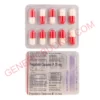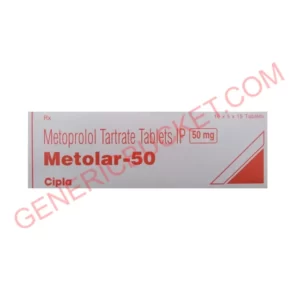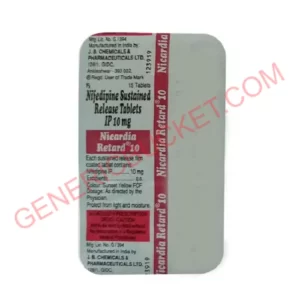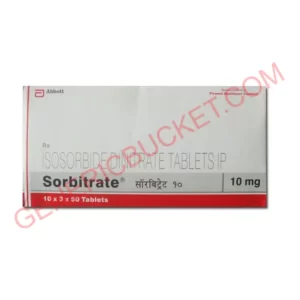Respidon 3 Tablet (Risperidone 3mg)
$42.00 – $104.00Price range: $42.00 through $104.00
| Country of Origin | India |
|---|---|
| Dosage Form | Tablets |
| Generic Name | Risperidone |
| Indication | Treatment of Schizophrenia |
| Manufacturer | Torrent Pharmaceuticals Ltd |
| Packaging | 10 Tablets in a strip |
| Composition | Risperidone (3mg) |
| Respidon 3 Tablet (Risperidone 3mg) | |||
| Pack Size | Price | Price/Unit | Add To Cart |
| 50 Tablet/s | $42.00 (0.84/unit) | $0.84 | |
| 100 Tablet/s | $70.00 (0.7/unit) | $0.7 | |
| 150 Tablet/s | $104.00 (0.69/unit) | $0.69 | |
INTRODUCTION
RESPIDON 3MG contains Risperidone which belongs to the group of medicines called anti-psychotic agents. It is used in the treatment of mental illness such as schizophrenia and mania. Schizophrenia is a serious mental disorder in which the person may interpret things abnormally such as seeing, hearing or feeling things that are not there, believe things that are not true or feel unusually suspicious or confused. Symptoms include delusion, hallucination, confusion, disorganized speech or thinking and bizarre behavior.
Mania is a major symptom of bipolar disorder, where the person becomes very excited, elated, agitated, enthusiastic or hyperactive. RESPIDON 3MG can also be used in the short-term (up to 6 weeks) and long-term treatment of aggression in adult patients with non-responsive Alzheimer’s dementia, who harm themselves or others and in intellectually disabled children (at least 5 years of age) and adolescents with conduct disorder.
This medicine helps to alleviate the symptoms of various mood disorders by affecting the levels of chemical messengers such as dopamine and serotonin. It can be taken with or without meals. Avoid consumption of alcohol while taking this medicine. The most common side effects of taking this medicine are parkinsonism, anxiety, sleep disorders, headache, dizziness and blurred vision. Contact your doctor if any of these symptoms bothers you.
Before taking this medicine, inform your doctor if you have heart, liver, kidney or any other neurological disorders. Proper dose adjustments are required in such patients. This medicine should be used with caution in elderly patients with dementia, as there is an increased risk of stroke in such patients. This medicine is strictly not recommended for use in children under 5 years of age. Consult your doctor before taking.
USES OF RESPIDON 3MG
- Treats schizophrenia and mania
- Treats aggression in adult patients with non-responsive Alzheimer’s dementia
- Treats aggression in intellectually disabled children (at least 5 years of age) and adolescents with conduct disorder
HOW RESPIDON 3MG WORKS
Risperidone is an anti-psychotic agent which helps to alleviate the symptoms of various mood disorders by affecting the levels of chemical messengers such as dopamine and serotonin. It also stops your symptoms from coming back. It works by inhibiting the activity of dopaminergic D2 and serotonergic 5-HT2A receptors, which leads to decrease in dopaminergic and serotonergic neurotransmission, and therefore decreasing positive symptoms of schizophrenia (such as delusions and hallucinations), mania or aggression and improves your mood, thoughts or behavior.
DIRECTIONS FOR USE
Take RESPIDON 3MG as directed by your physician. It can be taken with or without meals. Your doctor will decide the correct dose and duration for you depending upon your age, body weight and health condition. Continue to take this medicine, as long as your doctor tells you to do so, to obtain better results.
SIDE EFFECTS OF RESPIDON 3MG
SERIOUS
- Signs of stroke (such as dementia, sudden change in mental state, sudden weakness or numbness of your face, arms or legs, especially on one side and slurred speech)
- Tardive dyskinesia (jerking movements with inability to control the movements of your face, tongue or other parts of your body)
- Signs of blood clot (swelling, pain, and redness in the leg, chest pain and difficulty in breathing)
- Severe allergic reaction (such as skin rash, itching, fever, swollen mouth, face, lip or tongue, shortness of breath or low blood pressure)
- Neuroleptic Malignant Syndrome (fever, muscle stiffness, sweating or low level of consciousness)
- Priapism (prolonged or painful erection)
COMMON
- Difficulty in sleeping, depression and anxiety
- Symptoms of Parkinsonism (such as dyskinesia (slow or impaired movement), sensation of stiffness or tightness of the muscles, tremor or drooling)
- Headache, dizziness, abnormal heart rate, high blood pressure, shortness of breath
- Infection of respiratory tract (such as pneumonia, bronchitis, common cold symptoms)
- Urinary tract infection, ear infection
- Symptoms of hyperprolactinemia (such as swelling of breast in men, erectile dysfunction, decreased sexual desire, breast discomfort and leakage of milk in females or missed menstrual periods)
- Weight gain, increased or decreased appetite
- Dystonia (slow involuntary contraction of muscles of the body, abnormal movements of the eyes, mouth, tongue or jaw)
- Blurred vision or eye infection
- Nausea or vomiting, diarrhea, constipation, stomach pain
- Dry mouth, toothache
- Skin rash or redness
- Back pain, joint pain and muscle pain
- Urinary incontinence
- Swelling of the body, arms or legs, chest pain, fatigue and pain
RARE
- Sleep-related eating disorder
- Problems in blood vessels of the brain
- Coma (due to uncontrolled diabetes)
- Shaking of the head
- Glaucoma, problems with eye movement
- Thrombocytopenia (dangerously low levels of certain type of white blood cells)
- Excessive intake of water
- Inflammation of pancreas, a blockage in GI tract
- Dandruff
- Rhabdomyolysis (muscle pain)
- Skin hardening
- Coldness in arms and legs
- Jaundice (yellowing of skin and eyes)
HOW TO MANAGE SIDE EFFECTS
Nausea or vomiting:
Try taking this medicine with, or just after meals. Stick to simple meals. Do not eat rich or spicy food.
Constipation:
Eat fibre rich foods like fresh fruit, vegetables and cereals. Drink plenty of water. Exercise more regularly.
Diarrhea:
Drink lots of fluids, such as water or juice, to avoid dehydration. Do not take any medicines without speaking to a doctor.
Stomach pain:
Try to rest and relax. You can eat and drink slowly or have smaller and frequent meals. Keeping a heat pad on your stomach may also help. If still pain persists, speak to your doctor.
Headache:
Rest and drink plenty of fluids. Do not drink too much alcohol.
Dizziness:
Try to rest and relax. Get enough sleep. Avoid traveling, driving or operating any tools or machines while you are feeling dizzy. If the symptom still persists, contact your doctor for advice.
WARNING & PRECAUTIONS
PREGNANCY
RESPIDON 3MG should be used with caution in pregnant women. Consult your doctor before taking this medicine.
BREASTFEEDING
RESPIDON 3MG should be used with caution in breastfeeding women. Consult your doctor before taking this medicine.
DRIVING AND USING MACHINES
Do not drive or operate any machines, because this medicine may cause dizziness, tiredness and vision problems.
ALCOHOL
Avoid consumption of alcohol while taking this medicine.
KIDNEY
RESPIDON 3MG should be taken with caution in patients with kidney disease. Consult your doctor for advice.
LIVER
RESPIDON 3MG should be taken with caution in patients with liver disease. Consult your doctor for advice.
ALLERGY
Do not take this medicine if you are allergic to risperidone or any other ingredients in this medicine.
HEART DISEASE
RESPIDON 3MG should be taken with caution in patients with heart problems such as irregular heartbeat, high or low blood pressure or other cardiovascular problems. Consult your doctor for advice.
OTHERS
Before taking RESPIDON 3MG, inform your doctor if you have following conditions:
- Are at risk of having a stroke (such as circulation disorders of the brain)
- Ever experienced involuntary movements of face, mouth and tongue
- Neuroleptic Malignant Syndrome (fever, muscle stiffness, sweating or low level of consciousness)
- Parkinson’s disease or dementia
- Low levels of white blood cells in the past
- Diabetes
- Epilepsy
- Prolonged or painful erection
- Problems in controlling your body temperature
- Hyperprolactinemia (abnormally high levels of prolactin blood)
- Tumor dependent on prolactin levels
- Family history of blood clots
- Are going to have an eye operation
INTERACTIONS
Talk to your doctor, if you are taking,
- Medicines that induce calmness and sedation (such as benzodiazepines (e.g. diazepam, clonazepam), opiates (e.g. morphine) and antihistamines (e.g. diphenhydramine))
- Medicines used to treat heart problems (e.g. quinidine, propranolol, atenolol, verapamil, captopril, enalapril, diuretics (e.g. furosemide or chlorothiazide))
- Medicines that decrease blood potassium levels (e.g. aldosterone, spironolactone)
- Medicines used to treat epilepsy (e.g. phenytoin, carbamazepine or phenobarbital)
- Medicines used to treat depression and other psychiatric disorders (e.g. paroxetine, fluoxetine, amitriptyline, sertraline and fluvoxamine)
- CNS stimulants (used to increase CNS activity) e.g. methylphenidate
- Rifampicin (used to treat tuberculosis)
- Phenothiazines (used to treat psychosis) e.g. chlorpromazine
- Cimetidine or ranitidine (used to reduce stomach acid)
- Itraconazole and ketoconazole (used to treat fungal infections)
- Ritonavir (used to treat HIV infection)
- Levodopa (used to treat Parkinson’s disease)
Related products
Angina Pectoris Anti-Anginals
Angina Pectoris Anti-Anginals
Antibiotics
Antibiotics
Antibiotics
Heart & Blood Pressure
Angina Pectoris Anti-Anginals








